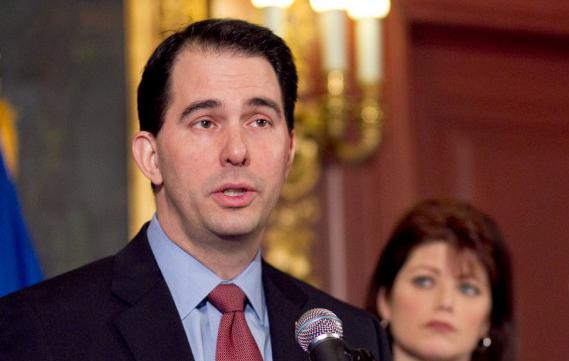Gov. Scott Walker plans to expand the statewide K-12 private school voucher program in his 2015-17 biennial budget proposal. The program will include more students than ever before, a proposition which has lawmakers and education experts questioning ideology.
The program was previously expanded in Walker’s 2013-15 biennial budget as a statewide trial that was capped at 1,000 students, 31 private schools and set voucher amounts.
In his January budget address, Walker unveiled his plan to lift this voucher cap. He said every family is different and deserves a choice in what school best fits their student’s needs.
“Overall, we want to provide the best education possible for every child in this state,” Walker said in the address. “For many, like my sons and me, it will be a traditional public school. For other families, it will be in a successful charter, private, virtual or home school environment.”
Julie Mead, a University of Wisconsin professor in the Educational Leadership and Policy Analysis Department, said these would all change if Walker’s expansion proposal were passed.
“The expansion will remove program caps on both student enrollment and the number of private schools allowed, as well as change the way the program is funded,” Mead said.
The funding currently involves a complex equation that shares costs between public schools and general state revenues. Now the funding will come from a “convoluted” state aid pool to be divided among students accepted into the programs, Mead said.
Mead said removing the cap and changing the funding would actually result in less tuition being available for each student. This debate, Michael Apple, a UW educational policy professor, is deeply ideological.
Apple said the funding will affect public schools.
“Every dollar that is given to a voucher program takes away from funding to public schools,” Apple said.
Apple said public schools are being starved for money right now, adding that this creates a crisis for schools in high-need areas. He said Walker’s expansion proposal is a tactical move to try and make Wisconsin a private school system.
In a recent statement about Walker’s proposed budget and voucher expansion, Rep. Jeremy Thiesfeldt, R-Fond du Lac, said it is not about taking away from public schools, but giving parents the best choice for their children’s education.
“It is parents’ duty to make sure their children are educated, and they need viable alternatives suited to their needs,” Thiesfeldt said. “It is the state’s duty to provide access to these viable alternatives.”
The first publicly funded private school voucher program was the Milwaukee Parental Choice Program in 1990. Its purpose was to provide private school education for students coming from low-income families with public subsidies as tuition.
Thiesfeldt said the state should be working toward a student-centered education system and not blocking students from attaining the best education possible due to socioeconomic status.
However, Rep. Lisa Subeck, D-Madison, said funding these private school programs, which are often religious, is unconstitutional.
“These private, religious programs are a violation of the constitutional separation of church and state and the government should not be funding this,” Subeck said.
Republicans believe religion is good and public schools are bad, Mead said. She said private schools actually yield no better results compared to public schools.
“Walker has no justification for privatization,” Mead said. “They are not going to produce better educational results and Walker hasn’t thought enough about how expansion will ultimately affect public schools.”


